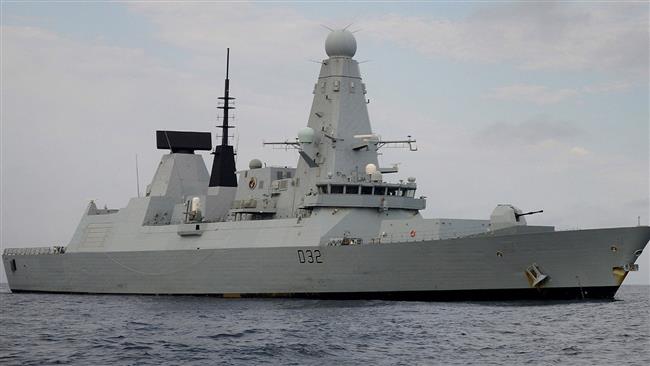
RNA - The Type 45 destroyer will arrive in the region on Friday and take on the role of HMS Defender, another warship of the same class which provided air support to American aircraft carriers there, Fallon said on Sunday.
The American warships have been conducting attacks on purported Daesh (ISIL) positions inside Syria and Iraq for several months now.
Fallon said that all three branches of the British armed forces have been engaged in the attacks.
"All three armed services are making a vital contribution to defeating Daesh,” he said.
“RAF aircraft are hitting the terrorists daily on the ground; the Army is providing counter-explosives training to Iraq troops; the Royal Navy helps protect coalition carriers in the Gulf as they launch strikes,” he added.
Earlier this month, British warplanes targeted one of Iraq’s former dictator Saddam Hussein’s palaces in the northern city of Mosul.
London also announced in late July that it will send 250 more troops to the Arab country, raising the total number of British troops to more than 500.
The UK’s involvement in the US-led campaign against militants in Iraq and Syria stirred controversy after British Special Forces were spotted fighting alongside anti-government militants in Syria.
HMS Daring’s deployment to the Persian Gulf is expected to spark controversy amid substantiated reports that the ship is not capable of coping with the warm waters.
In fact, the UK navy’s fleet of six Type 45 destroyers is prone to shutdowns in the harsh environment, despite being viewed as the force’s most modern warships.
First Sea Lord Admiral Sir Philip Jones told the House of Commons Defense Committee in July that the gas turbine engines used in the warships "degraded catastrophically" in the Persian Gulf's very warm seas.
According to him, the Royal Navy has acknowledged that it would not be able to operate the ships “all the time in every place on every day of the year.”
Weighing around 8,000 tons each, the £1 billion ships run on Rolls-Royce engines and have a crew of 190 people.
Rolls-Royce and BAE Systems, the manufacturer of the destroyers, have refused to take responsibility for the problem, with the latter saying the ships were never meant for "repeated and continuous" missions in the Persian Gulf.
111/847/C